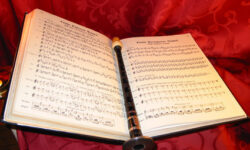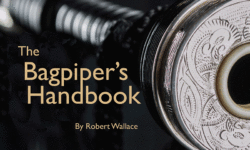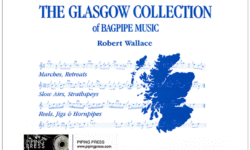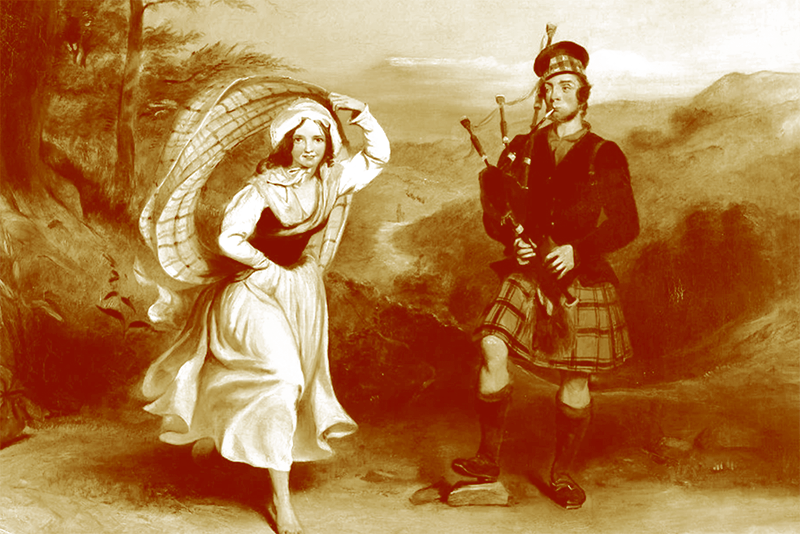
We conclude our interview of an itinerant piper, originally from Peterhead he says, and formerly of the 93rd Regiment. Given his references to the MacGregors, it is possible that he was one of that clan. See more here. This interview is dated 1851 and is by journalist Henry Mayhew. In this concluding excerpt the piper avers that the Lowland Scot is tight with his money when compared to the Highlander. He talks romantically of his chanter, how his great grandfather played for Bonnie Prince Charlie (a John MacGregor did indeed play for the Prince), how he knew Angus MacKay, and could play better than his successor as Sovereign’s Piper, William Ross….
My chanter was made by old William McDonnall, who’s been dead these many years. He was one of the best pipemakers that’s in all Scotland. There’s a brother of mine has a set of drones made by him and he wouldn’t give them away for any amount of money.
Everybody in Scotland knows William McDonnall. Ask any lad, and he’ll tell you who was the best pipe-maker that ever lived in Scotland—aye, and ever will live. My chanter has been in our family ever since McDonnall made it. It’s been handed down from father to son from that day to this. They always give it to the eldest. This is the last chanter McDonnall made.
A gentleman in London, who makes chanters, once gave me a new one, merely for letting him take a model of my old one, with the size of the bore and the place for the holes. You tell a good chanter by the tone, and some is as sweet as a piano.
My old chanter has got rather too sharp by old age, and it’s lost its tone; for when a stick gets too sharp a sound, it’s never no good. I had three brothers older than me, but I’ve got this chanter, for I begged it of them. It’s getting too old to play on, and I’ll have a copper box made for it, and just carry it at my side.
This chanter was played by my family in the at the Battle of Bannockburn, and every place whenever any of the Macgregor clan fought. I heard it from my father, and now I tell my lads, and they know it as well as I do myself.
My great grandfather played on this stick when Charlie Stuart, the Pretender, came over to Scotland from France, and he played on it before the Prince himself, at Stirling, and at Preston Pans and Culloden. It was at Preston Pans that the clans could be told by their tartans—the Macgregors, and the Stuart, and the Macbeths, and the Camerons, and all of them.
About my best friends in London are the French people—they are the best I can meet, they come next to the Highlanders. When I meet a Highlander he will, if he’s only just a labouring man, give me a few coppers. A Highlander will never close his eye upon me. It’s the Lowlander that is the worst to me. They never takes no notice of me when I’m passing: they’ll smile and cast an eye as I pass by.
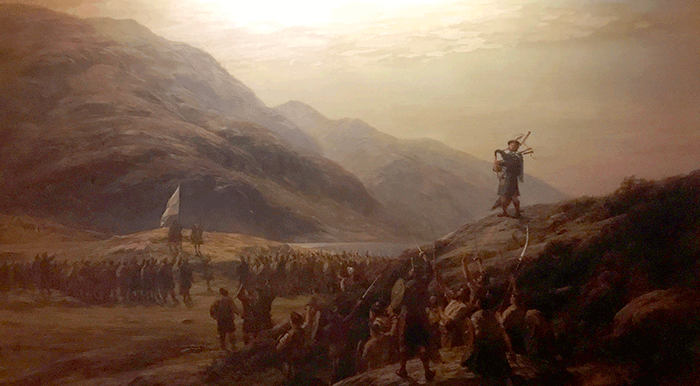
I never play the pipes when I go through the Lowlands —they never give anything. It’s the Lowlanders that get the Scotch a bad name for being miserable, and keeping their money, and using small provision. They’re a disgrace to their country. I belong to Peterhead.
The Highlander spends his money as free as a duke. If a man in the 93rd had a shilling in his pocket, it was gone before he could turn it twice. All the Lowlanders would like to be Highlanders if they could, and they learn Gaelic, and then marry Highland lassies, so as to become Highlanders.
They have some clever regiments composed out of the Lowlanders, but they have only three regiments and the Highlanders have seven; yet there’s nearly three to one more inhabitants in the Lowlands.
It’s a strange thing, they’d sooner take an Irishman into a Highland regiment than a Lowlander. They owe them such a spleen, they don’t like them. Bruce was a Lowlander, and he betrayed Wallace; and the Duke of Buccleuch, who was a Lowlander, betrayed Stuart.
‘All the Lowlanders would like to be Highlanders if they could……’
I never go playing at public-houses, for I don”t like such places. I am not a drinker, for as much whisky as will fill a teaspoon will lay me up for a day. If I take anything, it’s a sup of porter.
My little boy that goes about is fourteen years old, and he’s as straight and well-formed as if he was made of wax-work. He’s the one that shall have the chanter, if anybody does; but I’m rather doubtful about it, for he’s not steady enough, and I think I’ll leave it to a museum. If I had a good set of pipes I could play better; but my pipes are not in good order.
I’ve got three tunes for every one that the Queen’s piper plays [P/M William Ross]; and I can play in a far superior style, for he plays in the military style. McKay, the former piper to Her Majesty, was reckoned as good a player as there is in Scotland. I knew him very well, and many a time I’ve played with him. He was took bad in the head and obliged to go back to Scotland. If I had a good set of pipes I wouldn’t be much afraid of playing with any of the pipers.
I make all my reeds myself to put in the stick. I make them of Spanish cane. It’s the outer glazed bark of it. The nearer you go to the shiny part, the harder the reed is, and the longer it lasts. In Scotland they use the Spanish cane. I have seen a man, at one time, who made a reed out of a piece of white thorn, and it sounded as well as ever a reed I saw sound; but I never see a man who could make them, only one.










